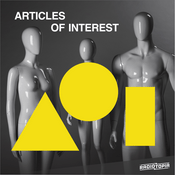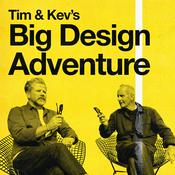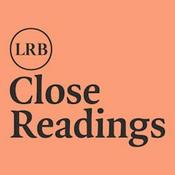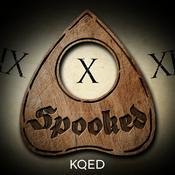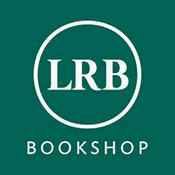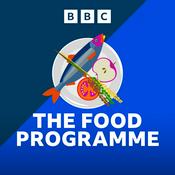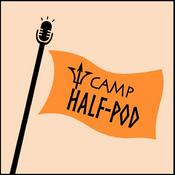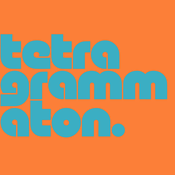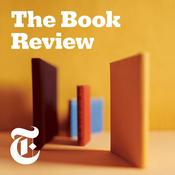15 episodes

Ep. 32: Harry Lester of Le Comptoir Central des Bazars
08/4/2025 | 43 mins.
We flew to Lyon, and you drive through a lot of forest to get here. It was sort of suffocatingly claustrophobic, just pine trees, pine trees, pine trees, all through the Livradois-Forez [national park], and then when you arrive in Chassignoles, suddenly you can see again, and there's light. We were like, ‘Ah, this is nice.’ It felt like a blank canvas for doing whatever we wanted. - Harry LesterHarry Lester is the British chef-restaurateur behind a trio of beloved Auvergne natural wine destinations, namely L’Auberge de Chassignoles, Le Saint Eutrope, and, as of this month, Le Comptoir Central des Bazars. Lester first drew acclaim in London as a chef-partner in the Anchor & Hope (est. 2003) before a chance tip from a friend (among other factors) inspired him to decamp with his young family to the remote Auvergne village of Chassignoles, where he and his wife Ali Johnson would transform a neglected rural auberge into an internationally renowned natural wine dining destination. In 2013, after selling the Auberge de Chassignoles, Lester opened the Clermont-Ferrand bistrot Le Saint Eutrope, which he ran until selling it to his former employees Michael Hazlewood and Manon Descombats in 2023. Earlier this month, Lester opened a new establishment in Clermont-Ferrand, Le Comptoir Central des Bazars, retaining the name of the toy shop that formerly inhabited the site on rue Lecoq. At the new address, one rediscovers all of the hallmarks that have made Lester’s restaurants so essential to the contemporary Auvergne natural wine renaissance: masterful yet unfussy cuisine, simple thoughtful décor, and an aficionado’s selection of natural wine from throughout Europe. I first met Lester on a pilgrimage to Le Saint Eutrope in March 2019, and have since leapt at any occasion to enjoy his fine company on the natural wine route throughout France. I joined him to record this podcast late last August in Chassignoles, where he still lives part of the time. On this occasion he was making an appearance as a guest chef at his former restaurant. Take a listen for Lester’s recollections of his first encounters with Auvergne natural wine; his tips for local food markets in Clermont-Ferrand; and how his tripe recipe helped win over the locals. AaronThis is a free episode of the NOT DRINKING POISON podcast. For access to all the episodes - plus years of vigneron interviews, reports, and natural wine news - please subscribe! FURTHER READING & LISTENINGNot Drinking Poison Podcast Series V: Chefs Who Give A S**t About WineEp. 31: Jonathan Schweizer of Café des Deux Gares & Le GoncourtEp. 30: Mateo Breña A Septemper 2022 piece on Harry Lester by Rachel Signer at La Mescita.A March 2013 feature on Harry Lester during his era at L’Auberge de Chassignoles at The Financial Times.A brief Q&A with Harry Lester at Planque. This is a public episode. If you'd like to discuss this with other subscribers or get access to bonus episodes, visit notdrinkingpoison.substack.com/subscribe

Ep. 29: Christian Binner of Domaine Binner
01/11/2024 | 48 mins.
In Alsace, we won the first step, which is to be known as a natural wine region. and I’m happy about that. But now we have to make a second step. It’s to say, “Yeah we can produce some cheap wines - and it’s also good to have everyday drinking wines - but we also have great terroir and we can making f*****g good wines.” - Christian BinnerChristian Binner is the head of Domaine Binner, a 17ha estate in Ammerschwihr in the Haut-Rhin in Alsace, and the president and co-founder of the Associations des Vins Libres d’Alsace. His father Joseph Binner had never gone in for synthetic chemical viticulture, which paved the way for Christian to oversee a transition to certified organic and soon after biodynamic viticulture after joining the estate at the turn of the century. Initiated into natural wine circles by a meeting with Marcel Lapierre around the same time, Binner and his family embraced an ethos of natural winemaking; from 2012 (the year a new bioclimatic cellar was inaugurated) until 2022, Binner produced all his wines without added sulfites at any stage.In addition to his estate work, Binner has been at the forefront of négociant natural winemaking in Alsace for over a decade, starting with a limited collaboration with Stéphane Bannwarth in 2009. In 2014, Binner partnered with the team behind DUO Oenologie, Pierre Sanchez and Xavier Couturier, to found Les Vins Pirouettes, an innovative négociant agency model that aimed to introduce neighboring estates just debuting in natural winemaking (with the aid of Sanchez and Couturier) to the wider natural wine market. Les Vins Pirouettes has since seen sizable growth and success on export markets, such that in 2023, Binner sold his shares in the business to his partners, preferring to concentrate on production at his own estate - and the founding of a smaller, higher-end Alsace Grand Cru négociant project entitled Mëralla, in collaboration with his wife Michèle Ramponi. I first met Binner years ago at Camille Lapierre’s Festival Dézing in the Beaujolais, and have purchased his estate’s wines for a variety of restaurants and wine bars over the years. I joined him on an unusually sunny morning in May to chat about the precipitous rise of Alsace natural négociant wine; the challenges facing the Syndicat de Défense des Vins Natures; and the generational change that has taken place in natural wine service since COVID. AaronThis is a free episode of the NOT DRINKING POISON podcast. For access to all the episodes - plus reams of vigneron interviews, reports, restaurant reviews, commentary, and more - please subscribe!FURTHER READING & LISTENINGWhat is the Cost of Bargain Natural Wine? Everyone Wants A Recipe: An Interview with Xavier Couturier of DUO OenologieFighting with the Weapons of Big Wine: An Interview with Pierre Dietrich of PépinWe Have to Re-do the Work: An Interview with Jean Walch of Au Fil du Vin LibreEp. 23: Mathieu Lapierre of Domaine LapierreMy 2019 feature on Christian Binner in Sprudge. This is a public episode. If you'd like to discuss this with other subscribers or get access to bonus episodes, visit notdrinkingpoison.substack.com/subscribe

Ep. 28: Mads Kleppe
09/8/2024 | 38 mins.
I don't understand, but I respect people that can sit and drink Coche-Dury in their left hand, and Axel Prüfer in their right hand. I can understand why they still find [the former wine] interesting, but for me it was something that I'd let go of completely. I couldn't have moved to only working with natural wine without letting go of that other part. - Mads KleppeMads Kleppe is the gravel-voiced Norwegian sommelier responsible for radicalizing the natural wine program at renowned Copenhagen restaurant Noma throughout the 2010s. Upon taking over in 2009 from earlier sommelier Pontus Eloffson (who had already begun emphasizing biodynamic and natural wines), Kleppe soon began championing the entirely unsulfited and unfiltered work of winemakers including Franz Strohmeier, Laureanno Serres, Anthony Tortul, Christian Tschida, Tom Lubbe, and Axel Prüfer. Arguably more than anyone else in Noma’s wine lineage, Kleppe is responsible for what in natural wine circles is often referred to as “the Noma effect”: the phenomenon by which the famous restaurant’s imprimatur encouraged an unprecedented acceptance of - and enthusiasm for - natural wines previously deemed controversial among high-end restaurant buyers and clients alike. Kleppe initially followed a classical sommelier career path, working at Oslo Michelin-two-starred restaurant Bagatelle, while participating actively in sommelier competitions. He cites early encounters with Mâconnais vigneron Julien Guillot and then-burgeoning Etna star Frank Cornelissen (both in 2003) with sparking his initial interest in natural wine; upon moving to Copenhagen to work at Noma in 2009, he pursued the subject alongside peers in the Danish wine scene of the era, including Sune Rosforth and Anders Frederik Steen. Throughout his career at Noma, Kleppe made a habit of traveling to visit winemakers on his days off. Since leaving Noma in 2022, Kleppe has relocated to Tbilisi, where earlier this year he began work as the beverage director for Temur Ugulava’s vast Adjara restaurant group, which encompasses dozens of hotels, restaurants, and nightclubs, in addition to its Tbilisi flagship, the five-star Stamba Hotel. I first met Kleppe in Copenhagen in 2021, when a chance meeting at Den Vandrette led to an unforgettable two-day bicycle tour of many of the Danish capital’s finest natural wine spots. I also owe to Kleppe two sublime visits to Noma before the end of his tenure there. We recorded this episode in mid-May in the private dining room of Copenhagen restaurant Barr, which inhabits the dockside building that previously housed Noma. Check out the episode for Kleppe’s recollections of serving natural wine to U2; his favorite Georgian hangover cures; and why, within his peculiar synesthetic approach to wine mnemonics, “soup” is a color. AaronThis is a free episode of the NOT DRINKING POISON podcast. For access to all the episodes - plus reams of vigneron interviews, reports, restaurant reviews, commentary, and more - please subscribe!FURTHER READING & LISTENINGEp. 24: Sune RosforthEp. 25: Anders Frederick SteenEp. 26: Martin Ho of PompetteEp. 27: Riccardo Marcon of BarabbaAlice Feiring’s splendid July feature on Mads Kleppe. Noma’s Mixed MessagePodcast Series IV: Copenhagen Natural Wine Chronicles, Part IPodcast Series III: Les Emigré(e)s - Expat Natural Winemakers in France, Part IPodcast Series III: Les Emigré(e)s - Expat Natural Winemakers in France, Part IIPodcast Series II: Contemporary Paris Natural Wine, Part IPodcast Series II: Contemporary Paris Natural Wine, Part IIPodcast Series I: Paris Natural Wine Lifers, Part IPodcast Series I: Paris Natural Wine Lifers, Part II This is a public episode. If you'd like to discuss this with other subscribers or get access to bonus episodes, visit notdrinkingpoison.substack.com/subscribe

Ep. 25: Anders Frederik Steen
02/5/2024 | 43 mins.
Winemaker in English is a stupid word, because I don’t see myself as a maker of anything. I mean, we pick the grapes, we press them, we leave them to macerate; of course we do things. So we make stuff. But the wine? If you see the period of time where we actually work the grapes… Let’s say we work the grapes for six or seven weeks. Then it’s in barrel for four or five years. - Anders Frederik SteenAnders Frederik Steen is a Danish vigneron-négociant based with his wife and collaborator Anne Bruun Blauert in the southern Ardèche village of Valvignières, where the couple established a winemaking practice throughout the 2010s with the aid of Ardèche natural wine progenitors Gérald and Jocelyne Oustric of Domaine du Mazel. Today the couple farm almost 6ha of viognier, sauvignon, grenache blanc, grenache noir, portan, syrah, and serine, supplementing it with an almost equal volume of grape purchases from Domaine du Mazel and from Alsace vigneron Stéphane Bannwarth. In 2021, Barcelona-based interiors magazine Apartamento published a very lightly-edited volume compiling seven years of Steen’s tasting observations and notes-to-self, entitled Poetry is Growing in Our Garden. Steen’s charmed career in natural wine began in 2007, when he worked at Noma under pathbreaking Swedish natural wine sommelier Pontus Eloffson (and alongside another Swedish sommelier Ulf Ringus, now a partner in Sweden natural wine importer Vin & Natur). Steen left two years later to partner in influential Copenhagen restaurants Relae and Manfred’s, a time when he also began importing natural wine to Denmark. His winemaking practice began in 2013, in what was initially envisioned as an ongoing collaboration with the influential radical natural winemaker Jean-Marc Brignot, who at that time had recently left France for Japan. Their partnership lasted three years, by which time Steen had already begun to base himself in Ardèche, drawn by the sense of community and camaraderie surrounding the Oustrics at Domaine du Mazel. Steen and Blauert began farming their own parcels in 2017; today the couple live with their two children in center of Valvignières, where they are in the midst of renovating their own cellar after several years vinifying at Domaine du Mazel. Although we’ve traveled in similar orbits for many years, it wasn’t until harvest time at Domaine du Mazel 2019 that I first encountered Steen outside of the context of a natural wine salon. And it wasn’t until January of this year that we finally found an occasion to chat and taste some wines together, on an unseasonably spring-like morning before the Montpellier salons. Check out the episode for Steen’s peculiar writing process (it involves text messages); which winemaking techniques he learned from Jean-Marc Brignot; and his dastardly scheme to ensure the couple’s wines take up as much layout space as possible on restaurant wine lists. AaronThis is a free episode of the NOT DRINKING POISON podcast. For access to all the episodes - plus years of vigneron interviews, profiles, news reports, and commentary - please subscribe!FURTHER READING & LISTENINGEp. 24: Sune Rosforth of Rosforth & RosforthEp. 26: Martin Ho of PompetteA long interview with Anders Frederik Steen and Anne Bruun Blauert by Madeleine Willis in Apartamento. A terrific 2021 profile of Anders Frederik Steen and Anne Bruun Blauert by Alicia in Le Figaro. Podcast Series III: Les Emigré(e)s - Expat Natural Winemakers in France, Part IPodcast Series III: Les Emigré(e)s - Expat Natural Winemakers in France, Part IIPodcast Series II: Contemporary Paris Natural Wine, Part IPodcast Series II: Contemporary Paris Natural Wine, Part IIPodcast Series I: Paris Natural Wine Lifers, Part IPodcast Series I: Paris Natural Wine Lifers, Part II This is a public episode. If you'd like to discuss this with other subscribers or get access to bonus episodes, visit notdrinkingpoison.substack.com/subscribe

Ep. 24: Sune Rosforth of Rosforth & Rosforth
02/5/2024 | 31 mins.
There's a lot of interest for wine in Denmark. Since we haven't really been a wine producing country, [people are] eager to really go deeply down into what wine is. - Sune RosforthSune Rosforth is the head of influential Denmark wine importer Rosforth & Rosforth, which he founded in 1994, initially concentrating on wines from the Loire valley. Half-Parisian on his mother’s side, he hitchhiked around France as a young man and struck up what became a lifelong friendship while working for the family behind Anjou estate Château de Passavant. Cellar visits Rosforth conducted in the region alongside Passavant’s François David would form the nucleus of his initial portfolio, which also notably included the celebrated Saumur-Champigny wines of Clos Rougeard. Since the early 2000s, Rosforth has expanded his company’s portfolio to include many key natural wine estates in Catalonia, Italy, Chile, Georgia, and beyond. In 2012, spurred by conversations with Olivier Cousin, he began conducting regular shipments of wine from Brittany to Denmark via sailboat. To a large degree, Rosforth’s free-thinking work as an importer (and later, as a restaurateur in his own right) has accompanied - and helped shape - Copenhagen’s emergence as arguably the world’s premier nexus for natural wine and forward-thinking dining. Today, both Rosforth’s office-slash-dining-room-slash-wine-bar-and-wine-wholesaler site beneath Knippelsbro (colloquially known as “Under the Bridge”) and Den Vandrette, the nearby wine bar run by his wife Veronica, represent a spontaneous, informal, and thoroughly vital contrast to the city’s renowned fine dining scene. I first met Rosforth in 2020 over lunch at the home of Gard vigneron Alain Allier. Later we were reintroduced in Copenhagen by then-Noma-sommelier Mads Kleppe, and I’ve since had several occasion in that city to enjoy Rosforth and Kleppe’s supreme hospitality. (This includes Rosforth’s own thoughtful and daring cooking at the office, where he whips up, with little advance warning, dishes like shrimp in tomato-shrimp broth, or sautéed sheep testicles.) We recorded this episode in October 2023 in the Kulturtårnet (or Culture Tower) overlooking Knippels Bridge, a site chosen more for its sublime view than its amenability to sound recording. Take a listen for Rosforth’s take on the future of Clos Rougeard; his memories of Catalonian vigneron Joan Ramon Escoda before the latter began making wine; and his heartfelt apology for the intensity of his fellow Danes in Copenhagen bike lanes. AaronFURTHER READING & LISTENINGEp. 25: Anders Frederick SteenEp. 26: Martin Ho of PompettePodcast Series III: Les Emigré(e)s - Expat Natural Winemakers in France, Part IPodcast Series III: Les Emigré(e)s - Expat Natural Winemakers in France, Part IIPodcast Series II: Contemporary Paris Natural Wine, Part IPodcast Series II: Contemporary Paris Natural Wine, Part IIPodcast Series I: Paris Natural Wine Lifers, Part IPodcast Series I: Paris Natural Wine Lifers, Part II This is a public episode. If you'd like to discuss this with other subscribers or get access to bonus episodes, visit notdrinkingpoison.substack.com/subscribe
More Arts podcasts
Trending Arts podcasts
About NOT DRINKING POISON Podcast
Listen to NOT DRINKING POISON Podcast, Articles of Interest and many other podcasts from around the world with the radio.net app
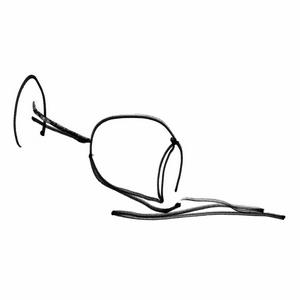
Get the free radio.net app
- Stations and podcasts to bookmark
- Stream via Wi-Fi or Bluetooth
- Supports Carplay & Android Auto
- Many other app features
Get the free radio.net app
- Stations and podcasts to bookmark
- Stream via Wi-Fi or Bluetooth
- Supports Carplay & Android Auto
- Many other app features


NOT DRINKING POISON Podcast
download the app,
start listening.
